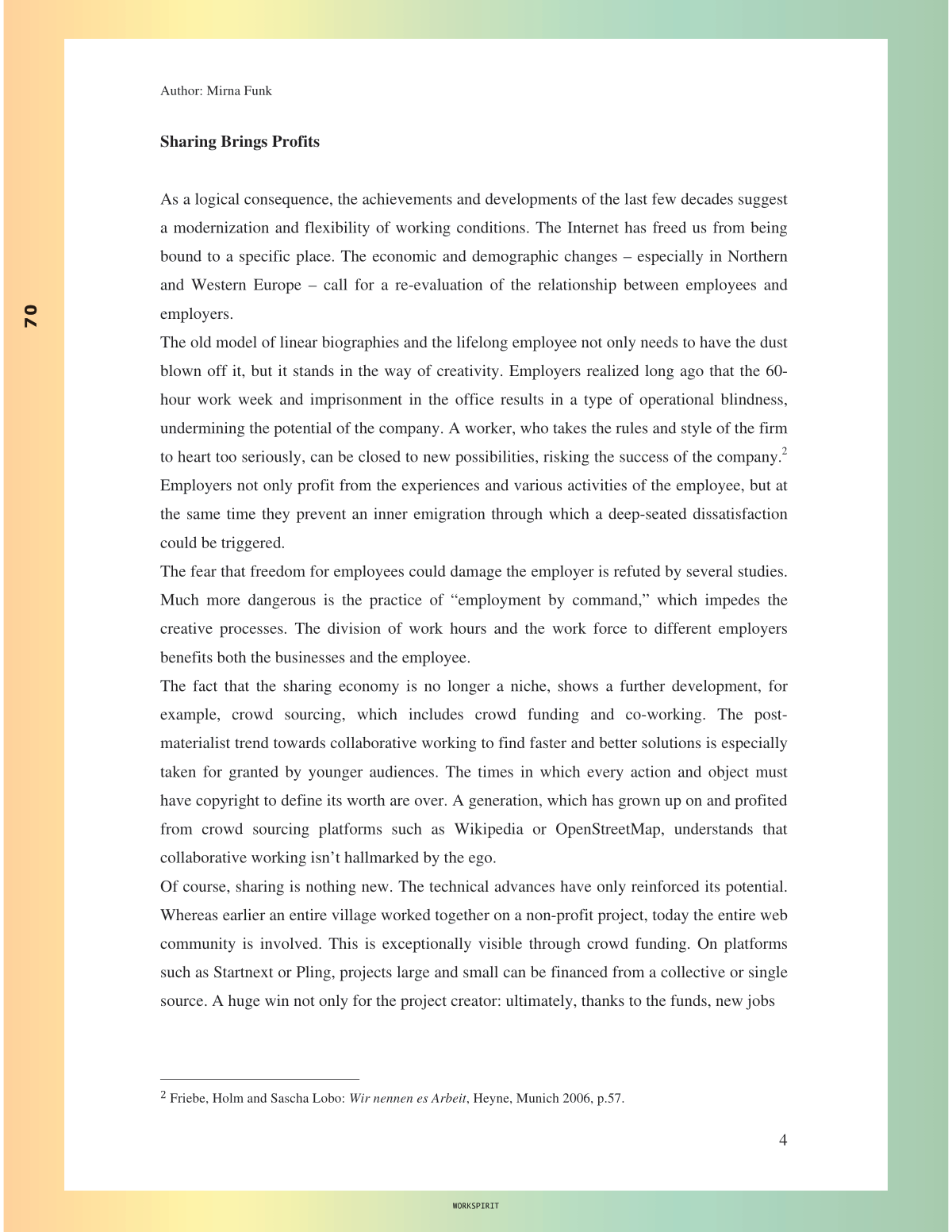70
WORKSPIRIT
Author: Mirna Funk
�
�
4
Sharing Brings Profits
As a logical consequence, the achievements and developments of the last few decades suggest
a modernization and flexibility of working conditions. The Internet has freed us from being
bound to a specific place. The economic and demographic changes – especially in Northern
and Western Europe – call for a re-evaluation of the relationship between employees and
employers.
The old model of linear biographies and the lifelong employee not only needs to have the dust
blown off it, but it stands in the way of creativity. Employers realized long ago that the 60-
hour work week and imprisonment in the office results in a type of operational blindness,
undermining the potential of the company. A worker, who takes the rules and style of the firm
to heart too seriously, can be closed to new possibilities, risking the success of the company.2
Employers not only profit from the experiences and various activities of the employee, but at
the same time they prevent an inner emigration through which a deep-seated dissatisfaction
could be triggered.
The fear that freedom for employees could damage the employer is refuted by several studies.
Much more dangerous is the practice of “employment by command,” which impedes the
creative processes. The division of work hours and the work force to different employers
benefits both the businesses and the employee.
The fact that the sharing economy is no longer a niche, shows a further development, for
example, crowd sourcing, which includes crowd funding and co-working. The post-
materialist trend towards collaborative working to find faster and better solutions is especially
taken for granted by younger audiences. The times in which every action and object must
have copyright to define its worth are over. A generation, which has grown up on and profited
from crowd sourcing platforms such as Wikipedia or OpenStreetMap, understands that
collaborative working isn’t hallmarked by the ego.
Of course, sharing is nothing new. The technical advances have only reinforced its potential.
Whereas earlier an entire village worked together on a non-profit project, today the entire web
community is involved. This is exceptionally visible through crowd funding. On platforms
such as Startnext or Pling, projects large and small can be financed from a collective or single
source. A huge win not only for the project creator: ultimately, thanks to the funds, new jobs
��������������������������������������������������������
��Friebe, Holm and Sascha Lobo: Wir nennen es Arbeit, Heyne, Munich 2006, p.57.�







